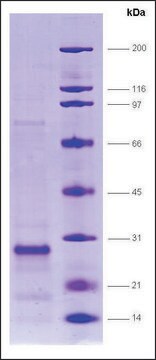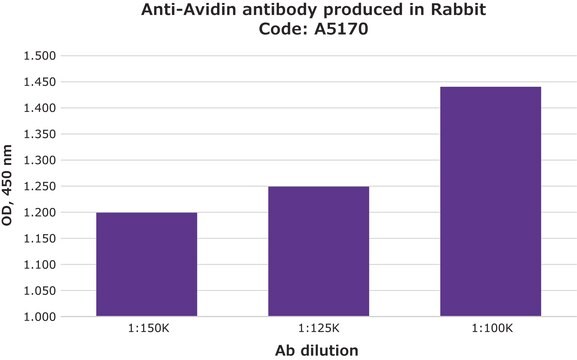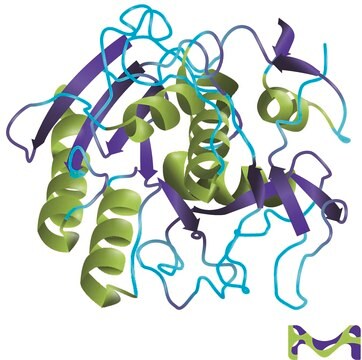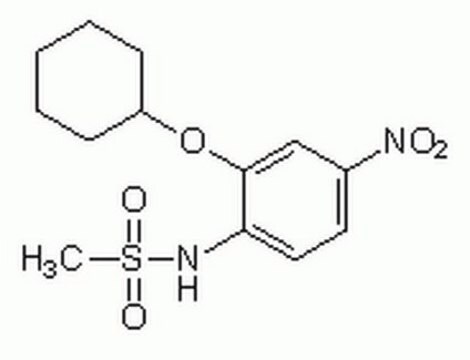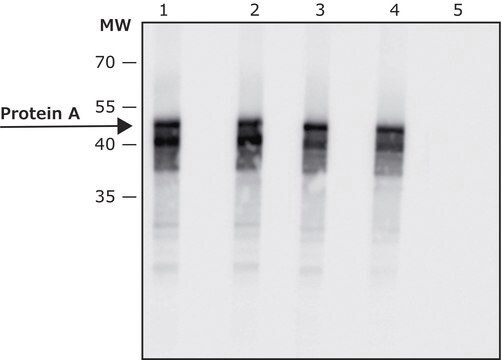B9655
Anti-Avidin antibody, Mouse monoclonal, biotin conjugate
clone WC19.10, purified from hybridoma cell culture
Sinonimo/i:
Monoclonal Anti-Avidin
About This Item
Prodotti consigliati
Origine biologica
mouse
Coniugato
biotin conjugate
Forma dell’anticorpo
purified immunoglobulin
Tipo di anticorpo
primary antibodies
Clone
WC19.10, monoclonal
Stato
buffered aqueous solution
tecniche
direct ELISA: suitable
dot blot: suitable
immunohistochemistry (formalin-fixed, paraffin-embedded sections): suitable
Isotipo
IgG1
Condizioni di spedizione
dry ice
Temperatura di conservazione
−20°C
modifica post-traduzionali bersaglio
unmodified
Cerchi prodotti simili? Visita Guida al confronto tra prodotti
Descrizione generale
Immunogeno
Applicazioni
Azioni biochim/fisiol
Stato fisico
Esclusione di responsabilità
Non trovi il prodotto giusto?
Prova il nostro Motore di ricerca dei prodotti.
Codice della classe di stoccaggio
10 - Combustible liquids
Classe di pericolosità dell'acqua (WGK)
nwg
Punto d’infiammabilità (°F)
Not applicable
Punto d’infiammabilità (°C)
Not applicable
Scegli una delle versioni più recenti:
Possiedi già questo prodotto?
I documenti relativi ai prodotti acquistati recentemente sono disponibili nell’Archivio dei documenti.
Il team dei nostri ricercatori vanta grande esperienza in tutte le aree della ricerca quali Life Science, scienza dei materiali, sintesi chimica, cromatografia, discipline analitiche, ecc..
Contatta l'Assistenza Tecnica.
